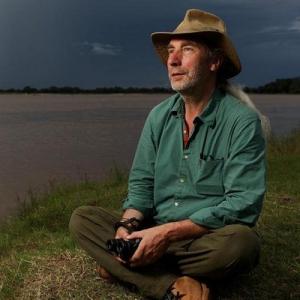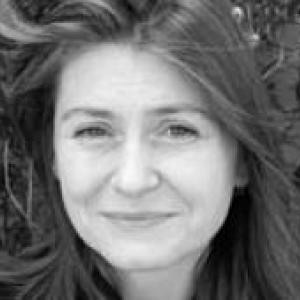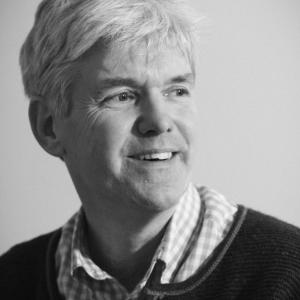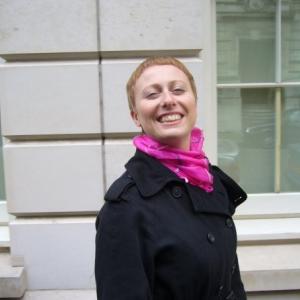Watch Simon Barnes, 2021’s Guest Judge, announce the winners of 2021’s Keats-Shelley and Young Romantics Prizes.
Watch all of 2021’s shortlisted poems - read by actors Polly Edsell and Harry Lloyd Yorke.
Watch Simon Barnes, 2021’s Guest Judge, announce the winners of 2021’s Keats-Shelley and Young Romantics Prizes.
Watch all of 2021’s shortlisted poems - read by actors Polly Edsell and Harry Lloyd Yorke.
Katrina Naomi, in the kelp forest
Sam Garvan, Actaeon
Victor Tapner, Letters from Manuela
Many poems showed great touches and a keen eye (or ear) for detail, but the ones that stood out were those that seemed most complete, fresh and contemporary. These poets seemed to use the theme as a loose starting point, let their thoughts and feelings wander, then sought to instil that sense of wonder in the reader. The three that made the shortlist felt the most ‘complete’ and generated lively and engaging poems that said things only those particular poems could say.
‘in the kelp forest’ by Katrina Naomi. The form of this poem, with perfectly positioned breathing (and perhaps thinking) spaces, allows us to explore an underwater world. There is something melancholic about how the speaker positions herself, knowing perhaps that to join the kelp would be to surrender her human life. But the poem also asks how we connect with the richness and difference of the world, and how we know and open ourselves in knowing it. Deryn Rees-Jones
‘Letters from Manuela’ by Victor Tapner. Manuela Sáenz was a revolutionary, a women’s rights protester and Simón Bolivar’s lover. The poem relates how Manuela ended her days translating letters from “one-night wives” for American whalers. Beautifully paced and under-stated, this refined but accessible poem has succinct imagery and a precision that belies the difficulty of writing in such a slender form. A great sadness pervades the poem as we – like her – are drawn to reflect ruefully on what might have been. A moving poem, then, and one that helps to rescue Manuela from obscurity. Will Kemp
‘Actaeon’ by Sam Garvan. This poised and elegant poem captures the moment when Actaeon, seeing his reflection in a pond, realises he has been transformed into a stag and is subsequently devoured by his own hounds. The poem beautifully suggests a before and after moment. In a deft fifteen lines, the poem uses the image of light as water as a vehicle for literal and metaphorical reflection. By focussing on immediate experiences, the poem moves deftly from “something” to “nothing”. We also participate in the moment of change, which here is the instant between life and death. Deryn Rees-Jones
Professor Deryn Rees-Jones and Will Kemp
‘Stainforth Force, North Yorkshire’ by David Wilson
‘Rime’ by Yvonne Reddick
‘Bathers’ by Ellora Sutton
Nicola Jackson, Moving shadows: The influence of John Keats on the poetry of John Tyndall.
Xena Wolf, “Lyrical Tales and Lyrical Ballads: The Supposedly Gendered Worlds of Romanticism”
Jai Rane, The soundscapes of childhood in Coleridge’s lyric poetry
There was an impressive range of response in the Keats-Shelley Prize Essays with a few themes emerging across the board. Some entries reflected upon personal circumstances but many demonstrated the quality of work being achieved—despite all this pandemic year has thrown at us – in English literary studies. We had essays on gender and sexuality, close readings of individual poems, introductions to lesser-known writers of the period, and re-introductions to well-known authors. There were some sophisticated and clever responses to Keats and Shelley and others of their era.
The field was strong and, in addition to the short-listed essays, Honourable Mentions should go to the following (in no particular order).
Professors Sharon Ruston and Simon Bainbridge
The winners and runners-up of 2021’s Keats-Shelley Prizes will be announced online on 16th September at 7pm GMT. You can watch the announcement here, and via our Twitter, Youtube and Facebook pages.
The virtual prize-giving will be hosted by our Prize Chair Simon Barnes – the acclaimed sports journalist, nature-writer and author of books about everything from Hong Kong to The Meaning of Birds.
We would like to send extra special thanks to our amazing Judging Panel – Professors Sharon Ruston and Simon Bainbridge for the essays, Professor Deryn Rees-Jones and Will Kemp for the poems.
We also want to thank and congratulate everyone who entered 2021’s Prize. Inspired by the bicentenary of John Keats’ death, we have spent a lot of the past year wondering how poetry can help us confront, understand and if possible overcome adversity. Reading your work, whether poems or prose, gave us enormous pleasure and considerable hope during these dark times. We hope that the challenge of writing them did something similar.
The theme of 2021’s Poetry Prizes is ‘Writ in Water’. Our inspiration is John Keats’ gravestone in Rome, whose epitaph reads: ‘Here lies one whose name was writ in water.’ The 2021 Young Romantics Prize is part of our wider KS200 programme, commemorating the bicentenary of John Keats’ death, aged just 25, on 23rd February 1821.
Essayists could write about any aspect of the writing and/or lives of the Romantics and their circles.
Any questions regarding the 2021 Prize: prizes@keats-shelley.org

Simon Barnes is an award-winning journalist, writer and novelist. In a 32-year career at The Times, he wrote mainly about sports, covering seven Olympics, five World Cups, a Superbowl and the World Chess Championship. His profiles included everyone from David Beckham to Red Rum, his publications range from novels about Hong Kong to a biography about England off-spinner Phil Edmunds. It was Simon’s talent for elegantly encapsulating the drama simmering underneath the action and within the players that won him readers, admiration and awards: ‘With Sampras the beauty was subtle, the tactics and execution obvious. With Federer, it was exactly the other way around,’ as he wrote in his 2018 career-spanning retrospective, Epic.
In addition to becoming The Times’ Chief sportswriter in 2002, Simon wrote columns about wildlife and birdwatching. These ushered in his second act as a writer of the natural world. Notable titles include Flying in the Face of Nature (1990), the bestselling How to be a Bad Birdwatcher (2004), and has continued with 2016’s The Meaning of Birds, Rewild Yourself (2018) and most recently On the Marsh: A Year Surrounded by Wildness and Wet. Simon was born in Bristol and grew up in London, returning to his birthplace to read English at Bristol University. In 2007, the university awarded him an honorary doctorate.
Listen to Simon consider what nightingales meant to John Keats and John Clare at the Keats-Shelley Podcast
Simon’s website is here.
Follow him on Twitter.

Deryn Rees-Jones was born in Liverpool with family links to North Wales, and she later studied English at the University of Bangor, before completing a literature PhD at Birkbeck College, University of London. She is Professor of Poetry at the University of Liverpool. She won an Eric Gregory award in 1993 and The Memory Tray (Seren, 1995) was shortlisted for the Forward Prize for Best First Collection. Her other works are Signs Round a Dead Body (Seren, 1998), Quiver (Seren, 2004), and a groundbreaking critical study of twentieth-century women’s poetry, Consorting with Angels (Bloodaxe, 2005), which was published alongside her accompanying anthology Modern Women Poets (Bloodaxe, 2005). Deryn’s selected poems, What It’s Like to Be Alive, was published in 2016 and is a Poetry Book Society Special Commendation.
In 2004 Deryn was named as one of Mslexia’s ‘top ten’ women poets of the decade, as well as being chosen as one of the Poetry Book Society’s Next Generation poets. Deryn has considerable experience as a poetry judge, including the National Poetry Competition, the T.S. Eliot Prize, the Costa Prize (Poetry) and every two years chairs the judging panel for the English Association’s Michael Murphy Poetry Prize for a best first collection of poetry.
Read Deryn’s poem ‘Nightingale’ - a Guardian ‘Poem of the Month, from our own ‘Odes for John Keats’ volume.
Her profile page at the University of Liverpool is here.

Will Kemp is a writer of poems, short stories and novels. He is Assistant Editor at Valley Press, teaches Creative Writing at York University and undertakes reviews for Dream Catcher and other magazines. He has won the Keats-Shelley Prize, Cinnamon Short Story Competition, Debut Collection Award, Cinnamon Pamphlet Competition and Envoi International. He has also been well-placed in many others.
Will has had three full poetry collections published, as well as an award-winning pamphlet and 450 poems and short stories in leading journals such as: Aesthetica; The Guardian; The Interpreter’s House; Iota; Magma; The North; Orbis; Other Poetry; Poetry News; The Rialto; The SHOp; The Times.
His debut short story collection, Surviving Larkin, was published recently by Valley Press. His fourth full poetry collection, In Another Life, will also be published shortly by Valley Press.
He regards a commendation in the 2006 Keats-Shelley Prize as the turning point in his writing career since it spurred him on during a time of self-doubt.

Professor Sharon Ruston is a long-standing judge of essay prizes. She is Chair of Romanticism in the English Literature and Creative Writing department at the University of Lancaster.
Her research specialism concerns the relations between the literature, science and medicine of the Romantic period, 1780-1820. She has published The Science of Life and Death in Frankenstein (2021), Creating Romanticism (2013), Romanticism: An Introduction (2010), and Shelley and Vitality (2005). She co-edited The Collected Letters of Sir Humphry Davy for Oxford University Press (2020) and led the AHRC-funded project to transcribe all of the Davy’s notebooks: wp.lancs.ac.uk/davynotebooks/
Read a Q&A with Sharon and Professor Tim Fulford at the BARS Blog.
Visit Sharon’s profile page at the University of Lancaster here.

Professor Simon Bainbridge is a long-standing judge of the essay prizes. He teaches and writes at the University of Lancaster.
His main research interest is in the relationship between the writing of the Romantic period and its historical context. He is the author of Napoleon and English Romanticism (Cambridge University Press, 1995), British Poetry and the Revolutionary and Napoleonic Wars (Oxford University Press, 2003) and Mountaineering and British Romanticism: The Literary Cultures of Climbing, 1770 – 1836 (Oxford University Press, 2020) and the editor of Romanticism: A Sourcebook. He has published in journals such as Romanticism, Romanticism on the Net and The Byron Journal and has written essays and entries for An Oxford Companion to The Romantic Age: British Culture 1776-1832, Romanticism: An Oxford Guide, The Blackwell Companion to European Romanticism, and The Oxford Handbook of British Romanticism. He is a Trustee of the Wordsworth Trust and the Wordsworth Conference Foundation.
Visit Simon’s profile page at the University of Lancaster here.